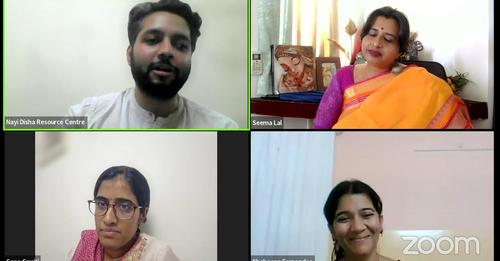Building Safe and Collaborative Spaces: Open Door and Child Protection Policies
October 11, 2024

https://www.youtube.com/live/vtWfvipIXfc
To truly support someone, we must listen to all the voices that matter in their life. When we hyper-focus on one person, reducing them to "the problem" through a narrow lens of diagnosis, we inadvertently devalue the needs of those around them. This one-sided approach not only overlooks the support others require but also weakens the overall effectiveness of the care provided.
When self-advocates, whether from disability communities or elsewhere, share stories of being blamed, shamed, and left unsupported, it often reflects a larger issue. The people meant to offer support may lack the knowledge, skills, or resources to do so effectively. A diagnostic model, in its traditional form, funnels all attention onto the criteria outlined by the DSM or ICD, as if neurotypical individuals are inherently equipped with all the answers and never in need of support themselves. This is a misguided interpretation of neurodiversity.
A true understanding of neurodiversity acknowledges that everyone, neurodivergent or neurotypical, has different needs for knowledge, skills, and support, all of which are equally important. When families are excluded from therapy sessions, particularly those that focus on children, we risk perpetuating cycles of trauma. Later, when we address childhood trauma in isolation, we again focus solely on the individual who fits within a diagnostic mold, leaving out the broader context and missing the opportunity for holistic support.
